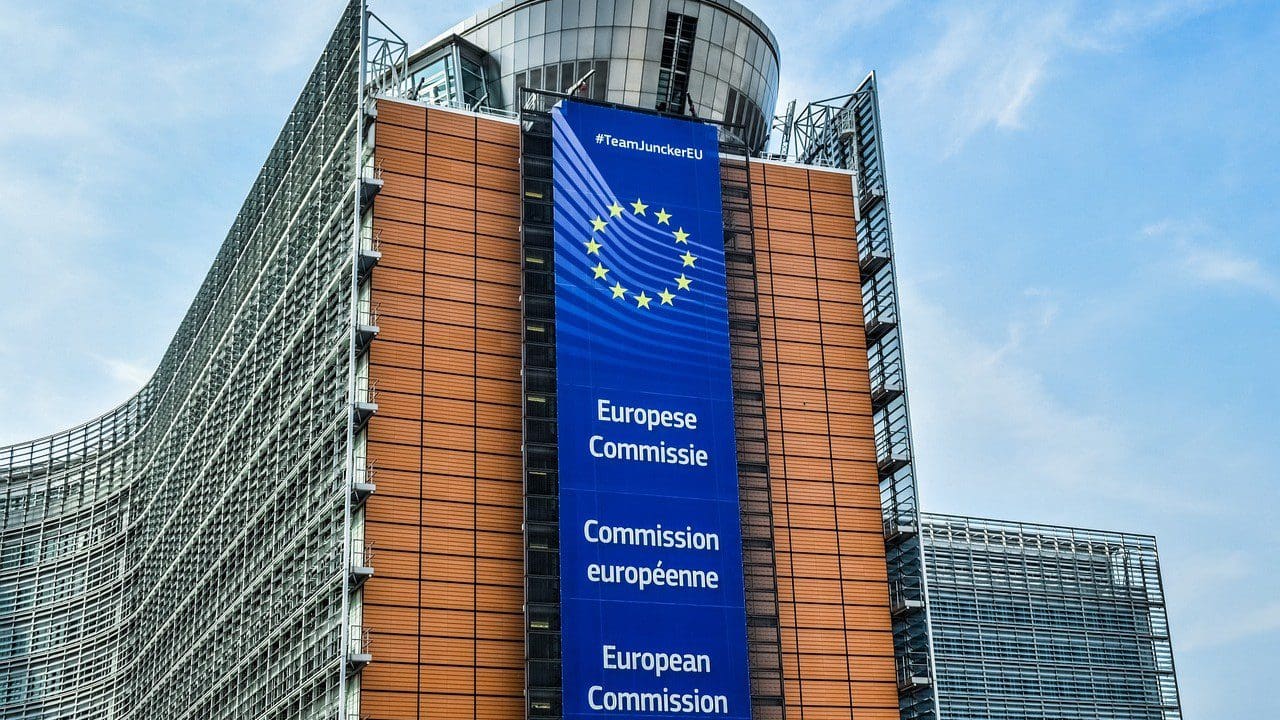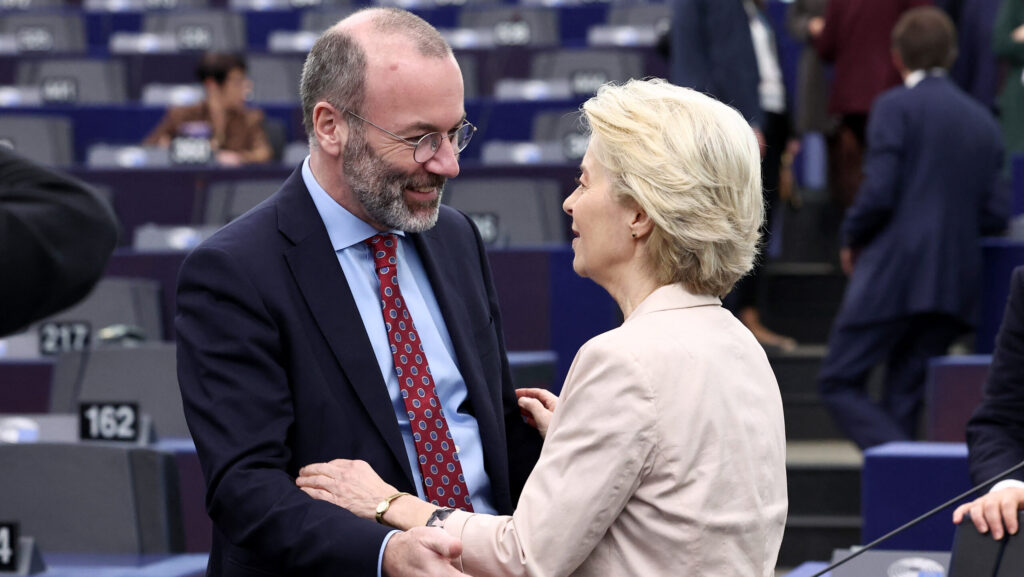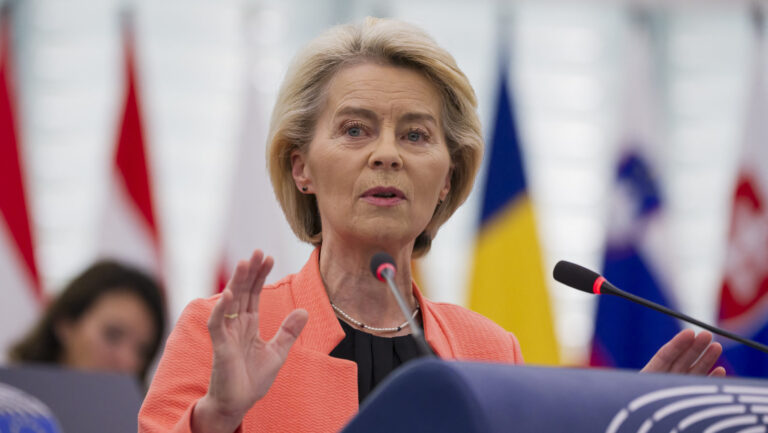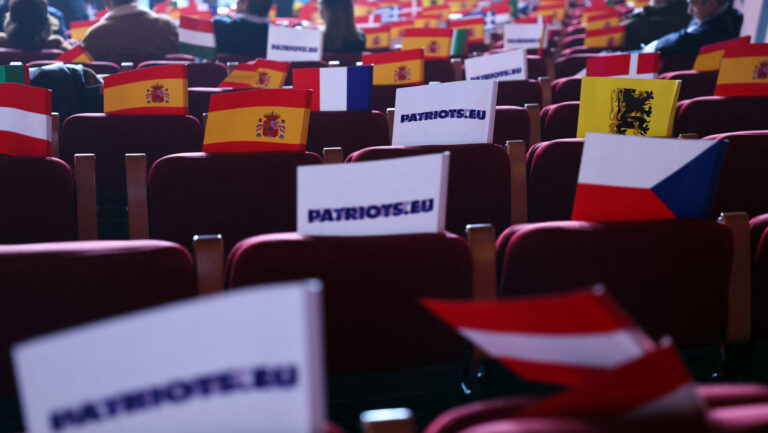The following is a translation of an article written by Ákos Bence Gát, a research fellow at the Europe Strategy Research Institute of the Eötvös József Research Centre, University of Public Service on Ludovika.hu.
The European Commission is taking on an autonomous political role, which raises legitimacy questions in the European Union.
On 13 September, Ursula von der Leyen delivered her annual State of the Union Address at the European Parliament’s plenary session in Strasbourg. Although the practice was introduced by the Lisbon Treaty, which entered into force in 2009, the Commission President’s address has only received significant media attention in the last few years. This is presumably linked to the ‘politicization’ of the European Commission, whereby the body is now concerned not merely with technical issues but also formulates strong political stances on matters that are more exciting, affect citizens’ daily lives and are traditionally the competence of the Member States.
One of the most memorable cornerstones of the European Commission’s politicization was laid by former Commission President Jean-Claude Juncker in his commencement address in 2014. Shortly after being elected President of the Commission on the recommendation of EU Heads of State and Government, the former Luxembourg prime minister declared that the body he would lead would be independent of the other EU institutions and would operate as a highly political Commission. Juncker broke with previous practice whereby the Commission sought to be a politically neutral actor on the European stage, particularly in terms of party politics.
The Commission’s legitimacy used to derive mainly from its technical expertise, but now it has strongly been infused with a political mindset.
However, the Commission’s political involvement raises several problems. In modern democratic structures, popular will is the main source of political legitimacy, i.e. leaders are empowered directly or indirectly by the electorate. Meanwhile, the President of the European Commission is appointed through a special procedure. According to Article 17 (7) of the Treaty on European Union currently in force, ‘Taking into account the elections to the European Parliament and after having held the appropriate consultations, the European Council, acting by a qualified majority, shall propose to the European Parliament a candidate for President of the Commission. This candidate shall be elected by the European Parliament by a majority of its component members.’ This means that although it is directly elected MEPs who elect the President of the Commission, MEPs can only vote for a candidate nominated by the European Council. Thus, unlike in the political structures of the Member States, there is not a sufficiently close link between the executive power and the electorate in the European Union for the Commission to legitimately pursue independent policies. The system was not designed for that, but for a previous practice where the Commission played the role of a more technical ‘honest broker’, taking into account and mediating between the different national and political positions, while relying on the guidance of the European Council of Heads of State and Government for important policy decisions.
For the Commission to play a legitimate political role, a complete rethink of the EU’s institutional and political structure would be needed. Since 2014, there have been attempts to introduce a so-called ‘lead candidate’ (Spitzenkandidat) system, whereby the leader of the European party with the most votes in the European Parliament elections would automatically become Commission President. However, this system failed to take root and the European Council refused to let go of its right to nominate, so in 2019, instead of the European People’s Party’s top candidate in the EP elections, Manfred Weber, Ursula von der Leyen, a German domestic political actor, became the President of the Commission.
Nevertheless, the failure of the lead candidate system is more good news than bad from a democratic point of view, as without deep institutional reforms it would only be a sham, which, rather than remedying the legitimacy problem, would only exacerbate it. Indeed, if the Presidents of the Commission could claim that their power derives from the votes of the European citizens in the European elections, they could even more easily detach themselves from the European Council. At the same time, the link between the Commission President and the European electorate would still only be apparent, because in practice
it would be the opaque political deals of the Brussels elite that would determine in advance who could occupy the position.
Just consider how much influence Hungarian, Polish, Czech, or Lithuanian voters would have on whom the European party families with any chance of winning, like the European People’s Party or the European Socialists, would place at the top of their electoral lists in Brussels… And yet these behind-the-scenes decisions would significantly narrow down, in practice predetermine, who could become President of the European Commission.
The original system laid down in the current treaties is much preferable. Nomination by the European Council gives the President of the Commission sufficient legitimacy to have a significant presence in the EU institutions. However, this legitimacy can only be sustained if the President of the Commission does not pursue his or her own political agenda, but relies on the general political guidelines of the Heads of State and Government on major policy issues. The latter, however, is clearly not the case if the Commission ‘decouples’ itself from the European Council, in line with the Juncker’s 2014 declaration and the practice that was also clearly observable under the presidency of Ursula von der Leyen.
We are currently living in a strange transition period, in which the Commission’s ‘politicization’ is taking place in a legitimacy vacuum, and as a result of this politicization, the former classical, technocratic legitimacy of the body is being eroded. Today, we can no longer think that politically controversial issues such as the rule of law investigations of Member States, migration, or gender issues can be seen through a neutral, professional lens, and this loss of trust is already trickling down to the seemingly less political, everyday issues as well. At the same time, as politicization takes place without real democratic political legitimacy, serious dilemmas arise: what exactly are the interests of the President of the European Commission, and whom does she represent when she gives her annual State of the Union Address?
Related articles:
Click here to read the original article.








